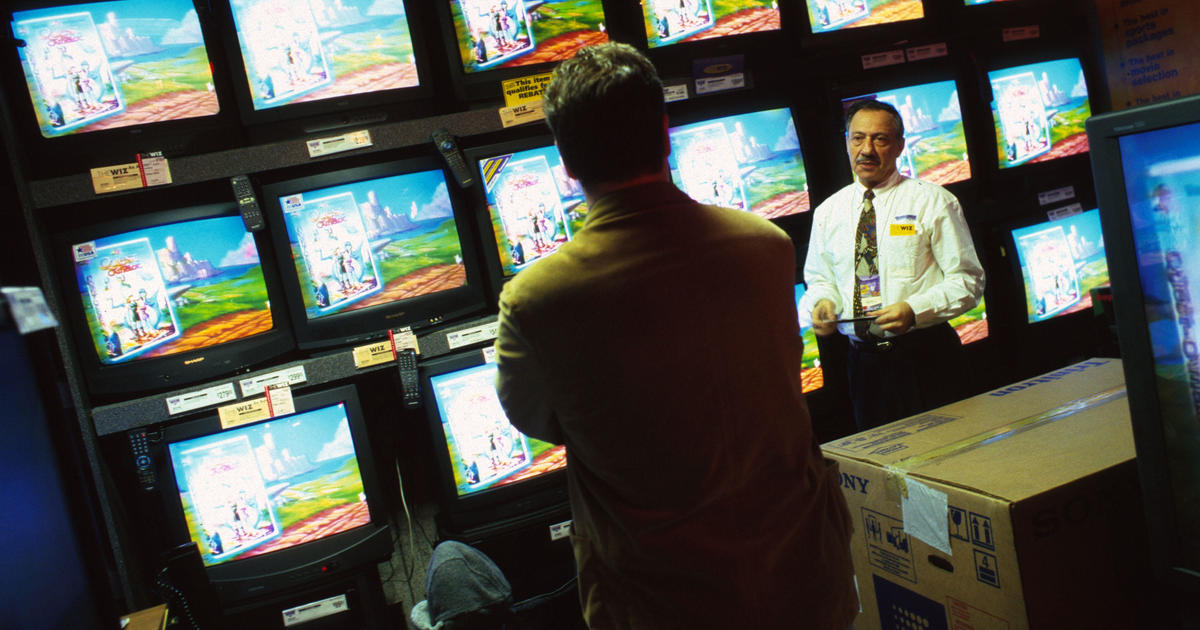/ MoneyWatch
President Donald Trump said Tuesday he's in no rush to seal a trade deal with China, telling reporters during a NATO gathering in London there's "no deadline" for an agreement and that "in some ways it's better to wait" until after the 2020 U.S. presidential election.
That is raising concerns the White House will proceed with proposed tariffs on $160 billion in Chinese imports set to take effect December 15, this time on a range of popular consumer items. Because U.S. companies pay those taxes, experts have warned that manufacturers and retailers would pass on the added costs to consumers.
Here are some of the items subject to the 15% tariffs scheduled for December 15, according to a list published by the U.S. Trade Representative:
- Cell phones
- Laptops
- Video game consoles
- Computer monitors
- Fireworks
- Plastic office and school supplies
- Certain toys, including pet toys
- Board games
- Footwear
- Camping goods
- Holiday lights
- Nativity scenes
- Scarves and shawls
Stocks fell on concern Mr. Trump is digging in for a prolonged trade war with the world's second-largest economy, including using tariffs on Chinese goods as a show of support for human rights in China and Hong Kong, analysts said.
"The fate of the Dec. 15 tariff increases remains the biggest issue of concern for the moment," Raymond James stock analyst Ed Mills wrote in a note to clients. "The market is likely upgrading the probability of [tariffs] in light of Trump's recent approval of a bill in support of Hong Kong's protestors and China's threatened retaliatory actions,"
Mr. Trump's comments came during a meeting with NATO Secretary General Jens Stoltenberg. They follow news Monday of potential U.S. tariffs on imported goods from France as well as a threat from Mr. Trump to reinstate metal tariffs on Brazil and Argentina.
The White House in August split up proposed tariffs between September 1 and December 15 to allow retailers to stock up on Chinese-made goods for this year's holiday season. If the tariffs are imposed, nearly every good imported from China will be subject to the levy.
Any deal between China and the U.S. is "dependent on one thing: Do I want to make it," Mr. Trump said during the NATO meeting. China and the U.S. have been discussing what Mr. Trump has called a "phase one" deal since October, but have yet to sign an agreement.
The prospect of billions in new tariffs on consumer products has some economists worried that Americans will pare back their spending, hurting the U.S. economy. It's an especially big concern for technology companies like Apple because iPhones and laptops would be subject to the levy.
The December 15 tariff deadline remains an "ominous date and line in the sand for U.S. tech vendors," wrote Wedbush technology analyst Daniel Ives in a note to investors.
Despite Mr. Trump's latest trade threats, some experts suggest he may simply be trying to divert attention from the ongoing impeachment proceedings in Congress. House Democrats on Tuesday released a report on Mr. Trump's dealings with Ukraine accusing him of placing "his own personal and political interests above the national interests of the United States."
"It is difficult to say why Trump is toughening his trade rhetoric now," Jonas Goltermann, a senior economist at Capital Economics wrote in a note to clients.
Mr. Trump may be looking to secure "concessions from China in the ongoing negotiations. Or he may be trying to shore up political support at home amid impeachment hearings in Congress and ahead of what is likely to be a grueling election campaign next year," Goltermann wrote.
— CBS News' Aimee Picchi contributed to this report.
